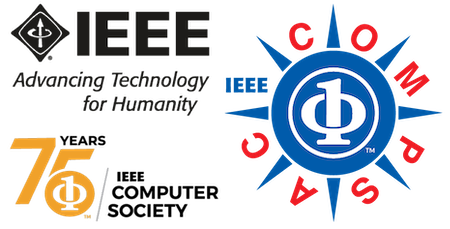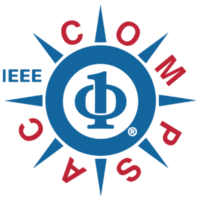The 15th IEEE International Workshop on Security, Trust & Privacy for Software Applications (STPSA 2021)
Call for Papers
This workshop will bring researchers from academia and industry to discuss methods and tools to achieve security, trust, and privacy goals of both pervasive and non-pervasive software applications. This workshop will focus on techniques, experiences and lessons learned with respect to the state of art for the security, trust, and privacy aspects of both pervasive and non-pervasive software applications along with some open issues.
Information security has become a major concern for software and applications. Software systems must be engineered with reliable protection mechanisms with respect to security, privacy, and trust, while still delivering the expected value of the software to their customers. The traditional approaches to secure a system (e.g., IDS, firewalls) are no longer sufficient to address many security, trust, and privacy (STP) issues. These issues should be addressed by building more effective STP-aware software applications. The principal obstacle in developing STP-aware software is that current software specification, design, implementation, and testing practices do not include adequate methods and tools to achieve security, trust, and privacy goals. Further, emerging techniques such as blockchain bring on new challenges to adopt them into developing STP-aware software and applications. In this workshop, we welcome papers on existing and emerging challenges and requirements of security, privacy, and trust for software applications.
As most systems are now connected to the Internet, the attack space has increased dramatically, and threat scenarios have many variations. Traditional security measures do not fit well for the software of pervasive applications. Since location and contexts are key attributes of pervasive applications, the privacy issues need to be handled in a novel manner than traditional software applications. Therefore, we have a special consideration to papers on security, privacy, and trust for pervasive applications.
Topics of interest include, but are not limited to, the following:
- Security, trust, and privacy (STP)-aware software development, and practices
- STP requirements elicitation and specification
- Models and languages for STP-aware software design
- STP challenges for pervasive computing applications
- Testing STP properties of software/applications
- STP management and usability issues in software/applications
- User interfaces for STP-aware pervasive and non-pervasive computing applications
- STP challenges in e-services, e.g., e-health, e-government, e-banking, e-commerce, e-marketing, and other web-based and pervasive applications
- STP challenges in mobile applications
- STP for applications in cyber-physical systems (CPS)/Internet of things (IoT)
- Formal models for ensuring STP in software/applications
- STP issues for handheld device software applications such as healthcare
- Blockchain technologies for STP-aware software/applications
- Teaching, innovative course or curriculum for STP-aware software/applications
- Experience reports on developing STP-aware software
- Ethical issues in STP-aware software/application development
- Experience reports on developing STP-aware software
Important Dates
Workshop papers due: 21 April 1 May 2021 (UPDATED)
Workshop paper notifications: 15 May 2021
Camera-ready and registration due: 31 May 2021
Authors are invited to submit original, unpublished research work, as well as industrial practice reports. Simultaneous submission to other publication venues is not permitted. In accordance with IEEE policy, submitted manuscripts will be checked for plagiarism. Instances of alleged misconduct will be handled according to the IEEE Publication Services and Product Board Operations Manual.
Please note that in order to ensure the fairness of the review process, COMPSAC follows the double-blind review procedure. Therefore we kindly ask authors to remove their names, affiliations and contacts from the header of their papers in the review version. Please also redact all references to authors’ names, affiliations or prior works from the paper when submitting papers for review. Once accepted, authors can then include their names, affiliations and contacts in the camera-ready revision of the paper, and put the references to their prior works back.
Formatting
Workshop papers are limited to 6 pages. Page limits are inclusive of tables, figures, appendices, and references. Workshop papers can add an additional 2 pages with additional page charges ($250USD/page).
Paper Templates
IEEE Paper templates are available in MS Word 2003 and LaTex. All submissions must use US 8.5×11 letter page format.
Note: If the submission link does not appear on EasyChair after logging-in, please click the above button again.
Workshop Organizers
Hossain Shahriar, Kennesaw State University, USA
Email: hshahria@kennesaw.edu
Mohammad Ashiqur Rahman, Florida International University, USA
Email: marahman@fiu.edu
Program Chair
Abdullah Farooq, Wentworth Institute of Technology, USA
Program Committee
Mohammad Masum, Kennesaw State University, USA
Nico Saputro Unpar, Parahyangan Catholic University, Indonesia
Amit Kumar Sikder, Georgia Tech, USA
Ahmad Alsharif, University of Central Arkansas, USA
Mahmoud Nabil, North Carolina A&T University, USA
Samet Tonyali, Abdullah Gul University, Turkey
Maanak Gupta, Tennessee Tech University, USA
Mumin Cebe, Marquette University, USA
Suryadipta Majumder, Concordia University, Canada
Fangyu Li, Kennesaw State University, USA
Atef Shalan, Georgia Southern University, USA
Dong Chen, Florida International University, USA

